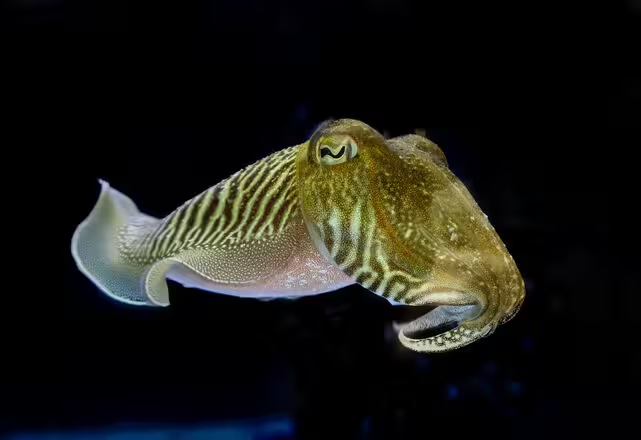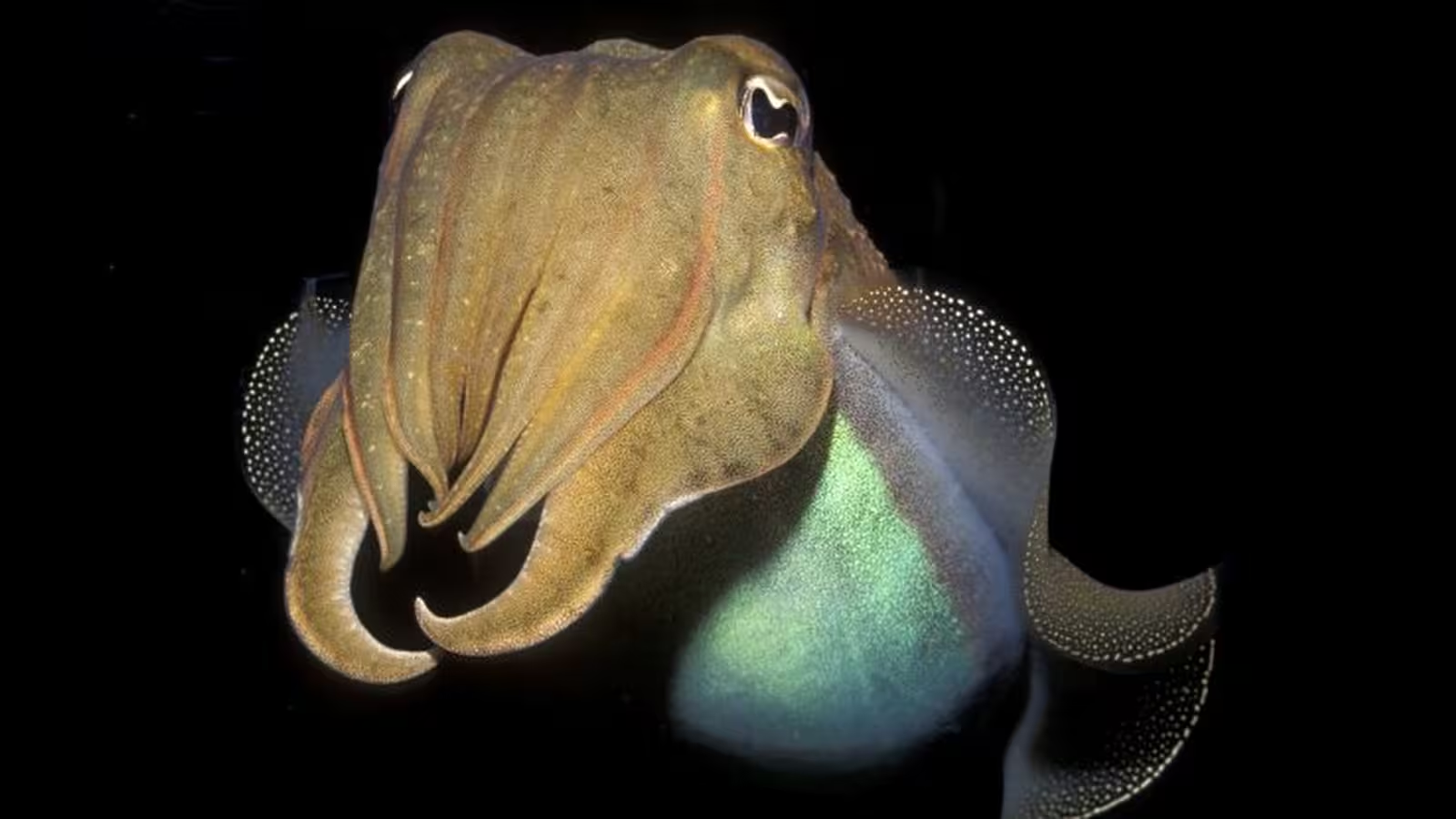5 Minutes
Introduction: Rethinking Animal Intelligence Through Cephalopods
Recent scientific research has challenged long-held beliefs about the boundaries of animal cognition, particularly among invertebrates. In a breakthrough study published in 2021, researchers demonstrated that cuttlefish – members of the cephalopod family known for their remarkable camouflage abilities – can pass a cognitive test originally developed for human children. The findings underscore the extraordinary intelligence of cephalopods and urge us to reconsider how we evaluate the problem-solving abilities of non-mammalian species.
The Marshmallow Test: A Benchmark for Delayed Gratification
Originating at Stanford University, the “marshmallow test” has long served as a classic measure of self-control and future planning in early childhood development. During the experiment, a child is presented with a simple choice: eat one marshmallow now or wait just fifteen minutes to receive a second marshmallow as a reward for their patience. Success in this task reflects an individual’s capacity for delaying gratification, a trait closely linked to executive function, impulse control, and long-term planning – all hallmarks of advanced cognition.
The test’s simplicity allows scientists to adapt its principles across species, substituting marshmallows for other rewards and teaching animals, through association, that better options are available to those who wait.

Adapting Cognitive Experiments for Cuttlefish
Cuttlefish (Sepia officinalis), like many cephalopods, inhabit environments where survival depends on rapid adaptation, resource competition, and avoiding predators. Prior animal studies found that some mammals, such as primates and even dogs (albeit inconsistently), as well as highly intelligent birds like crows and parrots, could master delayed gratification. But invertebrates, including cephalopods, had received little attention — until recently.
A team led by behavioral ecologist Dr. Alexandra Schnell at the University of Cambridge set out to challenge this paradigm. They designed a specialized experiment for six common cuttlefish to test the limits of cephalopod cognition and self-control.
The Experiment: Testing Patience Underwater
To simulate the marshmallow test, researchers placed each cuttlefish in a tank with two transparent chambers. Inside one chamber was a less-favored snack (raw king prawn), while the other housed a much more desirable live grass shrimp. Experimenters attached symbolic shapes to each chamber’s door: a circle, indicating immediate access; a triangle, signaling a time delay (ranging from 10 to 130 seconds); and a square for the control, denoting permanent inaccessibility.
In the key experimental condition, cuttlefish could immediately access the prawn but had to wait for the door to open to reach the coveted shrimp. Importantly, if a cuttlefish took the prawn, the shrimp was withdrawn, enforcing a true choose-or-lose dynamic. In the control setup, the shrimp chamber remained locked, ensuring no waiting strategy would pay off.
Results: Cuttlefish Match Cognitive Feats of Vertebrates
Remarkably, all cuttlefish in the experiment demonstrated the ability to wait up to two minutes for the preferred reward – a duration comparable to that observed in various large-brained vertebrates, including chimpanzees and corvids. According to Dr. Schnell, "Cuttlefish in the present study were all able to wait for the better reward and tolerated delays for up to 50-130 seconds, which is comparable to what we see in large-brained vertebrates such as chimpanzees, crows, and parrots."
The control group, for whom the shrimp was never available, displayed no such patience – further confirming that the cephalopods’ behavior was genuinely goal-directed and not random.
Exploring the Roots of Cephalopod Intelligence
This observation begs the question: why would an invertebrate with a radically different evolutionary history from mammals possess such advanced traits?
In other animals, the ability to delay gratification is tied to complex social behaviors, tool use, or food caching. Corvids, for example, store food for future use, and primates engage in intricate social interactions. By contrast, cuttlefish are generally solitary, do not use tools, and lack the social complexity of birds or mammals.
Researchers propose that this cognitive ability likely evolved as an adaptation to their unique ecological niche. As Dr. Schnell explains, “Cuttlefish spend most of their time camouflaging, sitting, and waiting, punctuated by brief periods of foraging. They break camouflage when they forage, so they are exposed to every predator in the ocean that wants to eat them. We speculate that delayed gratification may have evolved as a byproduct of this, so that cuttlefish can optimize foraging by waiting to choose better quality food.”

Learning, Flexibility, and Individual Variation
Beyond impulse control, the experiments also assessed learning and cognitive flexibility. Researchers introduced visual cues – a grey square and a white one – associating each with a food reward. Once the cuttlefish mastered the initial association, the cues were reversed, requiring the animals to rapidly adapt for a new reward.
Notably, individuals that adapted quickest to changing cues were the same ones most capable of waiting for a better food. This pattern suggests that self-control and learning may be linked, reinforcing the view that cephalopod intelligence is not only advanced, but also functionally flexible.
Broader Implications and the Frontier of Invertebrate Cognition
The discovery of such sophisticated cognitive skills in cephalopods dramatically expands our understanding of animal intelligence. Despite lacking vertebrate-style brains, cuttlefish demonstrate abilities previously considered exclusive to animals with large, complex nervous systems.
Recent studies have even documented "episodic-like memory" in cuttlefish – the ability to remember past events and details similarly to humans – and, as of 2024, the capacity to form "false memories." These insights challenge traditional views of invertebrate cognition and raise new questions about the evolution of intelligence throughout the animal kingdom. Scientists are now pursuing whether cuttlefish are capable of future planning, a property closely associated with human and avian intelligence.
Conclusion
Through carefully designed experiments, researchers have revealed that cuttlefish possess a surprising degree of cognitive sophistication, comparable in specific contexts to mammals and birds. Their abilities to delay gratification, learn from environmental cues, and adapt their behavior not only illuminate the hidden depths of cephalopod intelligence but also prompt a reevaluation of how intelligence evolves across diverse species. As studies continue, the cephalopod’s mysterious mind stands as a reminder that intelligence can emerge in unexpected forms throughout the natural world.


Comments